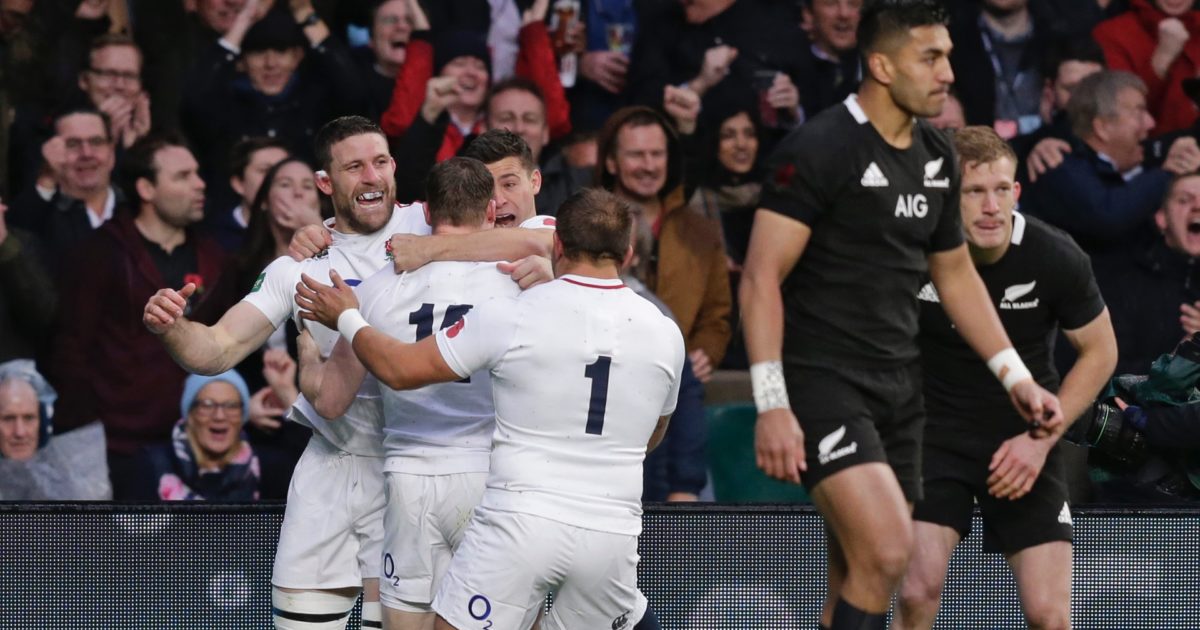World Rugby, countries and players issue joint statement on potential new competition from 2024

World Rugby have issued an update on discussions aimed at enhancing the Test calendar outside of the annual Six Nations and Rugby Championship tournaments, stating that retaining the current July and November windows is the best way forward towards accommodating a potential new tournament from 2024 onwards.
The lengthy statement added that the tournament, which would likely put an end to the current way tours are held, would not be run in World Cup year and would be modified in Lions tour years. Talks started at a workshop in London last January after World Rugby had failed in its bid to get a Nations League started.
The statement read: “Discussions regarding the future international rugby calendar continue in a positive and consultative manner after agreement was reached on a set of principles that will pave the way to explore possible new competition formats for international men’s 15s within the July and November international windows.
“Within an extensive and collaborative process, World Rugby has been facilitating discussions between major unions, international and domestic club competitions, and International Rugby Players with the joint ambition of exploring multiple options and seeking a solution that optimises player welfare, competition opportunities for emerging nations, and financial outcomes for both the international and professional club league environments.
“Three dedicated working groups – competition format, player welfare and financial impact evaluation – featuring player, international competition and professional club league representation, have been examining the comparative merits of the current July and November international windows and a combined October/November window. This work has been supported by an independent and objective financial assessment of the international and club landscape and global fan surveys.
John Mitchell has revisited the 2000 sliding doors moment that cost him 2003 World Cup glory with England
https://t.co/vqmUfm104s— RugbyPass (@RugbyPass) February 3, 2021
“The detailed evaluation, which has been endorsed by both the World Rugby professional game committee and the executive committee, has determined that competition format change is the key to increasing interest and value while retaining the existing July and November windows delivers the optimal environment for any new competition to be implemented from a player welfare, union and professional league financial perspective, broadcasters and fans.
“With agreement reached on the direction of travel, the groups also agreed to a set of principles to underpin the development of new competition formats within July and November windows:
- Any new competition format should also aim to improve player welfare when transitioning between club and country environments, optimising travel, rest and training load with further collaborative dialogue planned between international and domestic competitions to address this;
- Any new competition format should increase the competitiveness of the global game, offering greater opportunities for emerging nations and develop new commercial revenues;
- Any new competition format would not operate in a men’s Rugby World Cup year and would be modified in a British and Irish Lions year;
- Any new competition would not launch before 2024;
- World Rugby, The Nations and International Rugby Players will continue to explore and refine possible new international competition formats to optimise the July and November windows. This process has underlined the importance of partnership and consultation with the professional club game as the key to achieving optimal outcomes for rugby as a whole.
“All parties will continue dialogue guided by these principles to explore new competition formats that achieve the best possible relationship between the international and club game on an annual basis that has the management of player welfare at the heart of decision-making.
“Strong progress is also being made on optimisation of the four-year women’s international calendar with the ambition of providing greater opportunities for teams while supporting an expanded and more competitive Rugby World Cup.”
"My fear is that if it goes too far from what is a touring side with 30,000 fans to games at home with no fans, will it keep its special place in rugby’s hearts?"
– A solution from Keith Wood to the current impasse, w/@chrisjonespress ???#LionsRugbyhttps://t.co/Su3rZl9I79
— RugbyPass (@RugbyPass) February 2, 2021

































